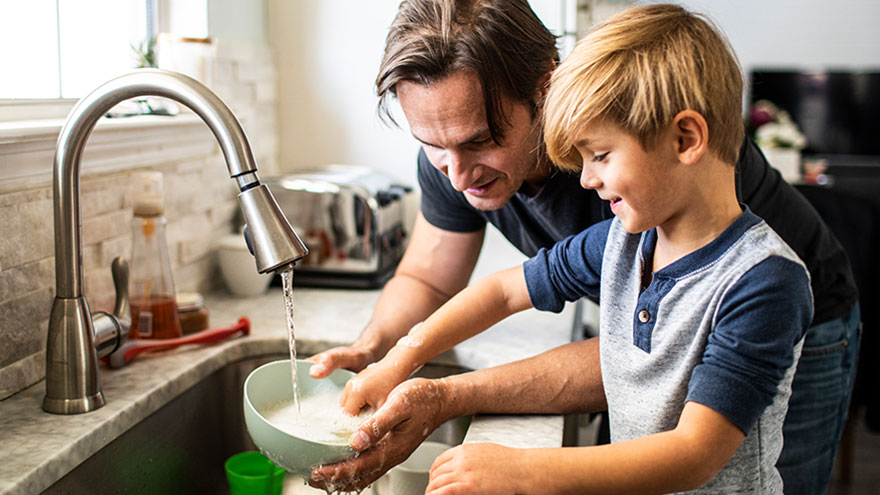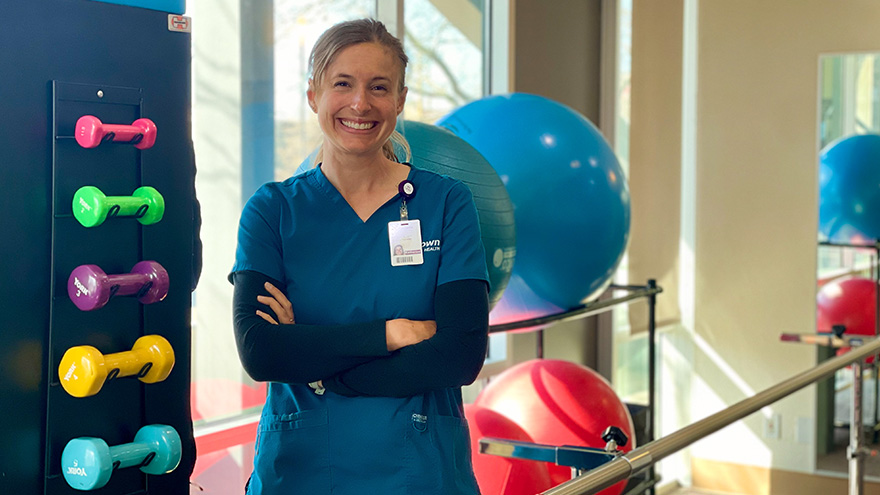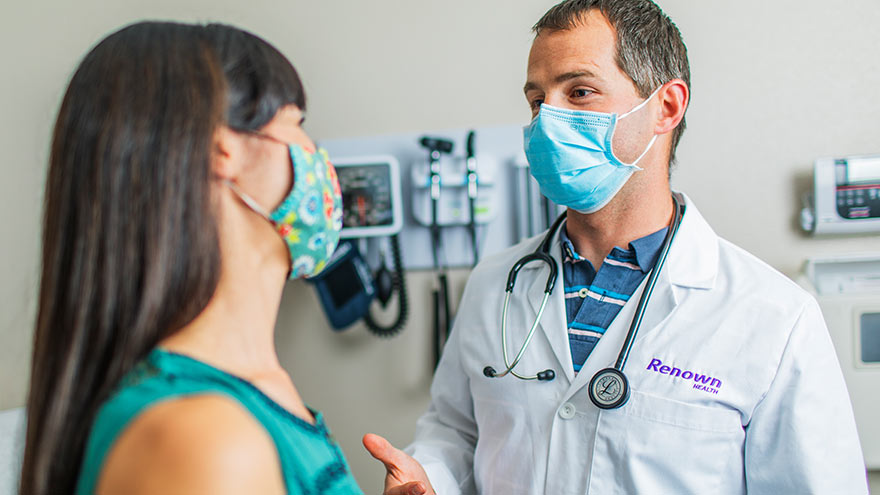Buscar
-
What is Disordered Drinking?
An alcohol problem can affect anyone at any age. Many factors, including job stress, genetics or depression, may contribute to the start of disordered drinking. Drinking alcohol exists on a continuum. For example, if someone feels down in the dumps for some time, it doesn’t mean they are clinically depressed. So if someone goes through a period with above-normal alcohol consumption, it doesn’t necessarily mean they abuse alcohol. Although “alcoholic” and “alcoholism” are common, they are not clinical descriptions. Alcohol use disorder is the preferred term. Symptoms are often mild but can be the start of a more significant problem. According to the National Institutes of Health (NIH), over 16 million adults live with alcohol use disorder. Symptoms of Alcohol Use Disorder Do you recognize any of the following symptoms in yourself or someone you know? Drinking more or longer than intended Trying to cut down or stop drinking but not able to Having to drink more than you once did to get the same feeling Being annoyed when family members discuss your drinking Regretting your behavior while you were drinking
-
Attending Burning Man? Health Tips From Renown
Renown Health welcomes you back from Burning Man. To make sure you have the support you need, here are some tips on where to get healthcare after your return from the playa. Our urgent cares see patients 365 days a year for medical concerns that are urgent but not life-threatening. This can include fractures, cuts, burns, sprains, fevers, animal bites, rashes, sore throats and fevers. Where To Get COVID-19 & Monkeypox Tests in Reno-Sparks Renown Health’s emergency rooms do not provide walk-in COVID-19 or monkeypox testing for patients. If you are experiencing symptoms related to COVID-19 or monkeypox, we recommend you make an appointment with your primary care provider or visit one of our urgent care locations. Testing for COVID-19 is also available at local pharmacies in the Reno-Sparks area. Please visit Washoe County's COVID-19 page to learn more. Labor Day Holiday Hours: Fernley and Fallon urgent care locations will be open from 9 a.m. to 3 p.m. on Monday, Sept. 5; all other Renown urgent care locations are open from 9 a.m. to 5 p.m.
Read More About Attending Burning Man? Health Tips From Renown
-
¡Adiós a las fiestas, hola a las rutinas! Hacer que los niños retomen el ritmo cotidiano
The kids are back in school and the holidays are all but a distant memory: Now what? Karen Wagner, APRN, offers specific tips about getting kids back to their routines in the post-holiday-hustle-and-bustle. Are you finding the kids struggling with bedtime routines? Having trouble getting them to tackle homework? There’s a simple reason: The holidays messed with their mojo! Here, we talk with Nurse Practitioner Karen Wagner about what to do to get them back on the straight and narrow. Why Routines Are Important “Holidays are a fantastic time to get together with family and friends, so our routines are usually off — and this is understandable, “Wagner says. “While the holidays are exciting, they are chaotic and can put our kids out of the routines.” So how do you get kids back into those routines they crave? “Consistency/routines are crucial for our kids,” she says. “Most people — kids and adults — experience a let-down feeling after the holidays, and post-holiday adjustment takes time.” So what can we do, specifically? Wagner recommends the following: Re-establish family routines, including before- and after-school programs or child care routines. Once kids are back on the regular schedule, they’ll find that sense of familiarity as the old routine returns. But keep in mind, this won’t happen overnight. Encourage healthy eating, as the upheaval of their schedule can be offset by a balanced diet. Make sleep time a priority: Keep in mind that it might take up to three nights of strict bedtime to get them back on track. But enforcing normal bedtime will get their bodies back on a normal schedule. Return to usual chores and expectations. Nothing encourages a return to routine like reminding them of the basics. Incorporate indoor and outdoor time. They likely spent lots of time outdoors during our unseasonably warm winter break — and they even had a snow day or two! So encouraging both indoor and outdoor time will help them return to a circadian rhythm and tire them out from exposure to fresh air. “It is never too early to encourage a love for physical activity in kids by exposing them to fun fitness activities and sports,” Wagner says. “Physical activity improves bone health, cardiorespiratory and muscular fitness, decreases levels of body fat, reduces symptoms of depression, and improves cognitive skills and the ability to concentrate.”
Read More About Bye-Bye Holidays, Hello Routines! Getting Kids Back into the Groove
-
Avoid Heat Exhaustion With This Simple Checklist
Young children under 4 and adults over 65 are especially vulnerable to heat exhaustion. Avoid heat exhaustion this summer with some expert tips. Northern Nevada summers can be downright hot, and although the balmy temperatures can feel great, they may cause heat-related illness, also known as heat exhaustion. Infants and children under 4 and adults over 65 are particularly vulnerable to heat exhaustion because their bodies adjust to heat more slowly. Without proper intervention, heat exhaustion can progress to heat stroke, which can damage the brain and other vital organs and even cause death. The Warning Signs of Heat Exhaustion Heavy sweating Elevation of body temperature Paleness Muscle cramps Tiredness, weakness, dizziness Headache Fainting Nausea or vomiting Cool and moist skin Fast and weak pulse Fast and shallow breathing Heat stroke happens when the body’s temperature rises rapidly and the body loses its ability to sweat. The Symptoms of Heat Stroke Body temperatures rising to 106 degrees or higher within 10 to 15 minutes Red, hot and dry skin (no sweating) Rapid, strong pulse Throbbing headache Dizziness or nausea Prevention and Treatment Make sure your air conditioner works Stay indoors and drink plenty of fluids Limit strenuous outdoor activities to mornings and evenings Drink plenty of water throughout the day Avoid caffeine and alcohol Do outdoor activities in the shade and wear light, loose clothing Take plenty of breaks and drape a wet bandanna around your shoulders to cool down If you suspect you or someone else is headed toward heat exhaustion or heat stroke, call 911 immediately.
Read More About Avoid Heat Exhaustion With This Simple Checklist
-
Three Things to Know About the Enhanced Benefits of Renown’s New Medicare Program
Renown Health recently announced that it has contracted with the Centers for Medicare and Medicaid Services (CMS) on a new program that offers enhanced Medicare benefits for Medicare beneficiaries. This new direct contracting Medicare program is designed specifically for patients with Original Medicare. Here are three things to know about Renown’s new program: The goal of the program is to help care providers work together to improve patients’ health by better coordinating patient care and reducing costs. Medicare beneficiaries who choose to sign up will have peace of mind knowing that they are in a program that ensures coordinated care along with potential cost-sharing assistance for chronic care management. Signing up for this program is easy – and it does not affect your existing Medicare benefits in any way. Simply click the button below, select either your current Renown Health or Geriatric Specialty Care provider from the drop down menu, complete the form and click “Submit Form.” It only takes a minute or two to fill out the form. You will be asked to provide the name of your primary care provider and be sure have your red, white, and blue Medicare card handy. Sign Up for Renown’s Enhanced Medicare Benefit Program Voluntary Alignment Sign Up Note: Participation in this program is voluntary. If you choose to sign up, your benefits will NOT change, and you can visit any doctor, other health care professional, or hospital. Learn more about Renown’s Direct Contracting Entity for Medicare Beneficiaries here. The statements contained in this document are solely those of the authors and do not necessarily reflect the views or policies of CMS. The authors assume responsibility for the accuracy and completeness of the information contained in this document.
Read More About Three Things to Know About the Enhanced Benefits of Renown’s New Medicare Program
-
La historia de Paola: incorporar la esperanza y la determinación en el cuidado del paciente
You may recognize her from billboards around town or the cover of Renown's latest annual report, but what you might not know is the story behind the now-familiar face. Paola Espinoza-Patino is the oncology unit's associate nurse manager at Renown Regional, and she grounds her work in hope and determination daily. Meet Paola:
Read More About Paola’s Story: Bringing Hope and Determination to Patient Care
-
Suicide Risk How to Spot a Friend in Crisis
How can you tell if a friend is in trouble or struggling with suicidal thoughts? And how can you support them in finding help? Are you feeling virtually exhausted? Life is always challenging, but the mental fallout of a global pandemic is real. Contributing to the loneliness epidemic is the shifting American lifestyle. More Americans live alone (28%) now than ever before, and fewer have kids. First, let’s acknowledge this is a time of anxiety and worry for everyone. Economic uncertainty, job transitions, grief, and loneliness are a perfect storm for mental stress. Even before the COVID-19 (coronavirus) pandemic mental health was a concerning issue, now it is a relevant topic of crisis. Secondly, anyone can struggle with suicidal thoughts. Those suffering from drug addiction are especially vulnerable. In particular the U.S. is currently seeing a rise in drug overdoses by almost 18% due to the pandemic. Unfortunately, suicide is responsible for one U.S. death every 11 minutes, according to the Centers for Disease Control and Prevention. Not to mention the millions who think about it, make a plan or attempt it. It is important to remember that suicidal thoughts, plans or intent must be helped immediately. Understanding Suicide Risk To clarify, depression is not a choice. No one wishes for endless days of feeling down, sleepless nights, and feeling as if you are in a dark tunnel. Currently, one in five Americans will experience a mental illness this year. This means one of your friends is struggling, right now. Specifically, consider this: When your body feels pain it talks to your mind. When your mind is suffering who does it talk to? So, how can you tell if a friend is in trouble? According to the National Institute of Mental Health be on the lookout for some depression clues below. Signs and Symptoms of Depression Persistent sad, anxious, or “empty” mood Feelings of hopelessness, or pessimism Irritability Loss of interest or pleasure in hobbies and activities Decreased energy or fatigue Moving or talking more slowly Feeling restless or having trouble sitting still Difficulty concentrating, remembering, or making decisions Signs and Symptoms of Suicide Risk Expressing feelings of hopelessness or having no purpose Talking about feeling trapped or being in unbearable pain Talking about being a burden to others Increasing the use of alcohol or drugs Sleeping too little or too much Withdrawing or isolation Displaying extreme mood swings. Talking about wanting to die or to kill oneself (Reference: Suicide Awareness Voices of Education) How to Help a Suicidal Friend It can feel awkward to approach the subject of suicide with a friend, but take any of the above warning signs seriously. Other ways you can help are by: Encouraging self-care and making sure they take care of basic needs Listen to their worries without judgement Ask them what they need from you, then follow through with action Let them know they are not a burden Don’t minimize or invalidate their feelings Point them to helpful resources Be their advocate and get them help If someone you know is in a life-threatening crisis situation, call 911 immediately. Suicide Risk Resources: National Suicide Prevention 24/7 Lifeline: 1-800-273-8255 Ayuda En Español: (Spanish National Suicide Prevention Lifeline) 1-800-628-9454 Crisis Text Line: Text HOME (or CONNECT) to 741741 to chat with a crisis counselor 24/7 free of charge. The National Alliance on Mental Health: 1-800-950-6264 Substance Abuse and Mental Health Services Administration: (SAMHSA) 24/7 helpline 1-800-662-4357
-
Cinco motivos para cambiar a la farmacia moderna de Renown
Renown Health has two retail pharmacy locations – one at Renown Regional on Pringle Way and another on Locust Street. And while many people think of a pharmacy as where we get prescriptions and pick up refills, it’s so much more. Adam Porath, vice president of pharmacy services at Renown, discusses five benefits of switching to a Renown Pharmacy. 1. Hospital Integration With the Meds-to-Beds Program, the Renown Health Pharmacy delivers prescriptions to patients on the floor when they leave the hospital. Another thing that is interesting about the pharmacy is its integration with providers. So, if there is a problem with your prescription, the Renown Pharmacy can get hold of your provider right away. We also can see your lab results and make sure that the dose you are prescribed is the right one. 2. On-Site Vaccinations The Renown Health Pharmacy has a private consultation area to administer vaccines on-site. Their team routinely stocks more than a dozen vaccines, and you can call either location (Regional: 775-982-7737 and Locust Street: 775-982-5280) to see if what you're looking for is in stock. Appointments are available in MyChart. 3. Compounding Services Only a fraction of pharmacies in the United States provides compounding services. In the Reno/Sparks area, there are just a few and Renown Pharmacy is one of them. Traditional retail pharmacies take drugs received from a drug manufacturer and put them into a smaller container in the individual amount that the doctor prescribed for a patient. A compounding pharmacy provides medications that are not available commercially. For example, a doctor has prescribed a dose that is smaller than what is commercially available. Compounding the medication will provide the dosage as prescribed. Another example could be a child who can’t take a tablet. The pharmacy may be able to use compounding to convert medications into something that is the child can take.
Read More About Five Reasons to Switch to Renown’s Modern-Day Pharmacy
-
Reconocimiento del Día Mundial del Linfedema
To recognize World Lymphedema Day, Katherine Bunker, Physical Therapist and Certified Lymphedema Therapist (PT, DPT, CLT) at Renown, shares her experience helping those with lymphedema and lymphatic disease thrive in their daily lives. Each year, World Lymphedema Day continues to be an advocate-driven celebration and global education opportunity on what it means to live with lymphedema and lymphatic disease. We explore why this cause deserves global recognition each year on March 6 below. Types of Lymphedema Lymphedema is an abnormal collection of protein-rich fluid that causes swelling just beneath the skin. The fluid, which is filtered through the lymph nodes, makes up a network of tissues that help the body get rid of toxins, waste and other unwanted substances. According to Katherine Bunker, PT, DPT, CLT at Renown Health, this collection of fluid causes swelling, usually in the arms or legs, but can happen in other areas too. It can also cause discomfort, restricted movement and may increase the risk of infections.
-
4 fantásticos beneficios para la salud de estar libre de desorden
The Benefits of Being Clutter-Free Gives you a better sense of well-being. Did you know procrastination is linked to clutter? According to a recent study clutter problems led to less life satisfaction, especially among older adults. Helps you lose weight. Constantly being in cluttered room, office or car can be stressful. All the undone cleaning tasks in the back of your of mind cause stress, which is linked to obesity. Promotes mental health. Having clutter around can make you feel anxious or overwhelmed. This prevents you from truly relaxing or focusing. Saves you money. It’s not a secret that money worries cause stress. According to a Journal of Consumer Research study, you’re more likely to make a purchase when you’re sitting in a messy room compared to a tidy room. Clutter-Free Tips Start with a plan. Make a list of your clutter-improvement priorities and the tasks needed to accomplish each one. Focus on one section of your home per week, so you don’t get overwhelmed. In fact, organizational expert Peter Walsh suggests starting with the easiest room first to gain momentum. Conversely, "The Life-Changing Magic of Tidying Up" author Marie Kondo suggests organizing by category (for example clothing or books). Experiment with an organizing plan that appeals to you. There are also many helpful on-line calendars you can use as a starting point. Delegate when you can. Include your children and spouse into your plan. Is uncle Bob an electrician? Then get him to swap out your eyesore of a ceiling fan or update an old light fixture. Of course it’s ok to outsource the duties - such as window cleaning or painting - if your budget allows. Buy less. The less you purchase the less you need to store, clean, keep track of, organize or dust. Seems simple, right? Not for everyone. On average we are bombarded with over 4,000 marketing messages a day, not to mention FOMO (Fear Of Missing Out) when we see our friends posting about their newest toys on their social media feeds. Focus on quality over quantity. When in doubt, throw it out. Still on the fence about what to throw away? Use these declutter decision-making guide questions to help you. Organize Your Health Along with taking care of your surroundings, make a commitment to get up to date on your health checkup and screenings. Preventing an illness is a bargain compared to the cost of a chronic disease. It's also a good idea to go through all of your medications and check the expiration date. Remember to properly dispose of medications. DO NOT flush medications down the drain or toilet, unless the label indicates it is safe to do so.
Read More About 4 Fantastic Health Benefits of Being Clutter-Free
-
Conexiones sociales: por qué benefician su salud
Some days a chat with a friend is all you need to feel better. Why? Because humans are social beings. Although we have more technology than ever at our fingertips, sometimes we may still feel left out or disconnected. Dr. Buddy Coard, Ed.D., Psychologist at the Stacie Mathewson Behavioral Health Addiction Institute at Renown, discusses the importance of social connections and tips on how to keep connecting, warning signs of loneliness and how to feel less lonely. Why are Social Connections Important? Dr. Coard points to significant research on the topic of loneliness and social connections. He uses the findings below to detail how social connections affect our overall health. In a recent survey 40% of participants reported they sometimes or always feel that their relationships are not meaningful and that they feel isolated. Surprisingly, this survey suggests Generation Z (18-22 years old) is the loneliest generation. Another study associates loneliness as a risk factor for early death. It indicates lack of social connection heightens health risks as much as smoking 15 cigarettes a day, or having alcohol use disorder. In fact, loneliness and social isolation are twice as harmful to physical and mental health as obesity (Perspectives on Psychological Science, Vol. 10, No. 2, 2015). A 2018 study investigated several standard measures of social isolation, including marital status, frequency of religious service attendance, club meetings/group activities and number of close friends or relatives. The findings revealed race as a strong predictor of social isolation. In particular, black men and women were more likely to be lonely than were white men and women. Loneliness also switches on your body’s long-term “fight-or-flight” stress signaling system, which negatively affects your immune system. People who feel lonely have lower immunity and more inflammation than people who don’t. Dr. Coard recommends the following tips for those who feel lonely. Tips to Increase Social Connection Get outside. More and more nature prescriptions are common. In fact even a 10 minute walk can elevate your mood and get your blood flowing. Develop a schedule of activities to accomplish in a week, setting realistic goals. Monitor your technology. Of course, watching the 24/7 news cycle can be depressing. Turn off the TV and listen to music or read a book instead. Even better, use technology to connect with family members by having a virtual game night or book club discussion. Write it out. When was the last time you sent a good old-fashioned letter or card? Or even wrote in a journal? Try to brighten someone’s day with snail mail. Writing down your hopes and fears also helps you to get worries off your mind and process your emotions. With this in mind, there are also volunteer opportunities to support others by sending a handwritten letter to others battling depression. De-clutter your surroundings. Go through those old photos and put them in an album. Clean out a drawer, cupboard or closet. You will feel a sense of accomplishment and can donate items you no longer need that others can enjoy. Increase your joy by reducing your clutter. Warning Signs of Chronic Loneliness One size does not fit all when it comes to loneliness. For this reason, loneliness can be different depending on your particular situation and your unique personality. However, if you feel some (or all) of the following symptoms, chronic loneliness may be affecting you: Lack of ‘best’ or close friends. You connect with others on a surface level, but feel no one truly understands you. People are n your life, yet you are not connecting on a deep, intimate level with them. You feel lonely even when people are around. This means feeling disengaged or not part of the group when around others. You feel less than enough. You often doubt yourself or don’t feel good enough when comparing yourself to others. And social situations feel exhausting. What Can Someone Do to Feel Less Lonely? Dr. Coard offers the following suggestion for those with a lack of social connections: Talk with your doctor, psychologist or another healthcare professional. Sometimes chronic loneliness relates to longstanding negative beliefs that an individual has about themselves. Engage in behavioral activation. For example, being more active and involved in life by scheduling activities which can potentially improve your mood and decrease feelings of isolation. Initially behavioral activation can be very challenging due to lack of motivation, but setting a reasonable schedule of activities is a good start. Pay attention to your sleep. Sometimes when people become lonely they experience significant changes in their sleep cycle. Frequently they sleep too much, or too little. Make sure to maintain a normal, healthy sleep/wake cycle, following good sleep hygiene recommendations.
Read More About Social Connections: Why They Benefit Your Health
-
3 Ways to Switch to a Medicaid Plan Accepted at Renown
Medicaid plays a significant role in our health care system and is the nation’s public health insurance program. In addition, this program is the predominant source of long-term care coverage for Americans. Renown Health is contracted with two Medicaid plans: Molina and Anthem. If you currently have a different plan but want to change to one that Renown accepts, you can request to change plans during the open enrollment period from January 1 to March 31. Request to change your Medicaid plan in one of three ways: Request a change to your plan, or managed care organization (MCO), by reviewing the available MCO plans online at bit.ly/MCOPlansNV and filling out the form on the webpage. Email Nevada Medicaid to ask for a plan change and include your name, Medicaid ID and the names and Medicaid IDs of any dependents in your home: MCORedistribution@dhcfp.nv.gov. Call your local Medicaid district office at 775-687-1900 (northern Nevada) or 702-668-4200 (southern Nevada) to ask about changing your plan. For more information about the Medicaid plans accepted at Renown Health, please visit: Anthem Molina Healthcare Renown Health accepts most insurances, but please visit the link below for the full list. Click here for all accepted plans
Read More About 3 Ways to Switch to a Medicaid Plan Accepted at Renown











